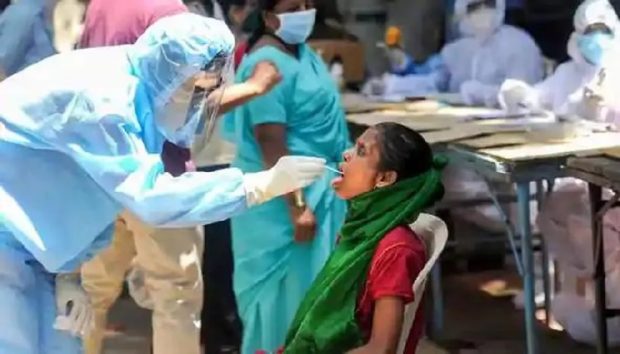
Abnormalities in immune system’s T cells linked to severe COVID-19: Study
PTI, Nov 22, 2020, 11:33 AM IST

Tokyo: Researchers have found that abnormalities in the immune system’s T cells are linked to pneumonia seen in COVID-19 patients, findings which may lead to new ways of avoiding severe lung infection caused by the novel coronavirus.
According to the study, published in the journal Frontiers in Immunology, critically ill COVID-19 patients experience an immune system overreaction, whereas the number of T cells – the “command centres” for immune cells – is significantly reduced in the blood.
The scientists, including those from Kumamoto University in Japan, explained that T cells regulate the activity of the immune system by recognising specific viruses, and also play important roles in virus elimination and the acquisition of immunity.
In the current study, they assessed T cells to determine the causes of severe pneumonia in COVID-19.
The researchers said CD4+ T cells (helper T cells) work to eliminate viruses from the body by promoting the maturation and activation of cytotoxic T cells, which attack virus-infected cells, and B cells, which produce antibodies.
On the other hand, they said when some CD4+ T cells become highly activated, they become regulatory T cells which then act as brakes to inhibit T cell responses.
The scientists analysed genetic data from bronchoalveolar lavage fluids from the lungs of patients with COVID-19 from Wuhan, China to characterise the activity and genetic characteristics of the CD4+ T cells present.
They found that while T cells were markedly activated in the lungs of patients with severe pneumonia, the T cell braking function stopped working.
While T-cell activities are usually balanced between accelerating and braking, the researchers said one of the most important brakes was not functioning in severe COVID-19 which may have led to pneumonia.
“This study has clarified the association between severe pneumonia and T cell abnormalities. We expect that these findings will lead to a better understanding of the mechanisms of severe pneumonia in patients with COVID-19,” said study co-author Masahiro Ono from Kumamoto University.
The scientists believe a more detailed understanding of the pathogenesis based on this research may contribute to the development of drugs to prevent the development of severe COVID-19.
Udayavani is now on Telegram. Click here to join our channel and stay updated with the latest news.
Top News
Related Articles More

Include 4 hrs of physical activity, 8 hrs sleep in routine for optimal health, suggests study

Traffic noise can increase risk of cardiovascular disease: Study

Nearsightedness is at epidemic levels – and the problem begins in childhood

Study finds genetic basis for link between depression, heart disease

World Malaria Day: WHO calls for equitable health access
MUST WATCH
Latest Additions

Navi Mumbai businessman cheated of Rs 2 cr by person posing as govt official

JD(S) suspends Prajwal Revanna from party

Kerala residents urged to save energy as power consumption soars

NCW seeks report from Karnataka Police on sexual abuse allegations against MP Prajwal Revanna

Chilled beer sales rise in hot weather in Karnataka






















